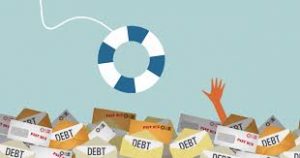
Nigeria’s foreign liabilities stood at $187.36bn while the country’s foreign assets amounted to $102.15bn as of December 2020, the International Monetary Fund has said.
From 2016, Nigeria’s foreign liabilities jumped by 42.41 per cent from $131.56bn, while foreign assets rose by 13.67 per cent from $89.87bn.
Foreign assets are the investment securities owned by the Nigerian government, companies, or Nigerians in foreign countries while foreign liabilities are assets owned by foreign governments, corporations and individuals in Nigeria.
This places Nigeria’s Net International Investment Position, which is foreign assets less liabilities at -$85.21bn as of December 2020.
Corporate Finance Institute, a Canadian finance repository, says that a positive NIIP makes a country a net creditor while a negative NIIP implies that the country is a net debtor.
CFI also said the NIIP was a measure of a country’s financial condition and its sustainability to take on more financial credit.
At -$85.21bn, foreigners own more assets in Nigeria than the value of foreign assets owned by FG, the state governments, Nigerian-owned companies and Nigerian individuals.
To understand Nigeria’s creditworthiness, the IMF measures the NIIP as a percentage of a country’s GDP. With a GDP of $432.30bn (World Bank), Nigeria’s NIIP stood at -19.71 per cent as of December 2020.
Alessandro Turrini and Stefan Zeug of the European Commission’s Directorate-General for Economic and Financial Affairs in a 2016 paper titled ‘Benchmarks for Net International Positions’ stated that the median value of NIIP norms which account for balance of payments and consistency with healthy financial position is set at -17 per cent of GDP.
At -19.71 per cent, Nigeria’s current account deficits due to lower earnings from oil revenues in 2020 places
the country below the benchmark.
However, the same paper says that when measuring the immunity of a country against the risk of external crises which is measured by a separate metric called NIIP prudential, the median value ‘is about -44 per cent of GDP’.
Investments – investment climate relating to government policies aimed at ease of doing business, and the investment image which is the perception foreigners have of the country.
He said these two factors had contributed to poor level of FDI inflows pushing more foreign investors towards portfolio investments which by nature were short-term.
He said, “Direct investment have about five components; profit generated by companies not repatriated; change in foreign share capital like fresh loans or direct investment funds; change and supply of credit which is when existing foreign investors in Nigeria allow their affiliates in neighbouring countries to attach them to certain suppliers when trading with them. But this is more of money coming in and less going out.
“The third one is under foreign liabilities which existing investors here owe other foreign companies abroad, while the last one is liability to the head office abroad.
“Most companies operating in Nigeria have parent offices abroad and have other affiliates in African neighbours belonging to the parent company.”
Aremu said a cursory look at the components shows that the ones keeping more money than taking out were better for the economy.









